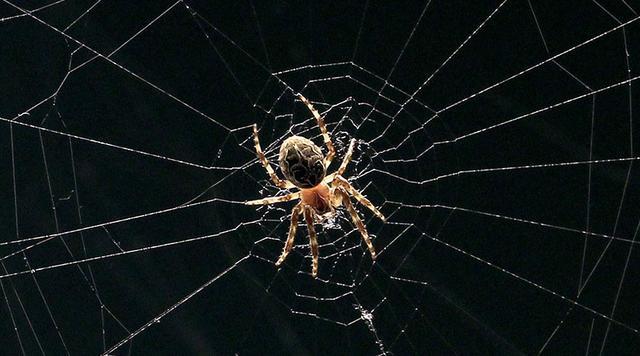(单词翻译:单击)
听力文本
This is Scientific American — 60-Second Science. I'm Steve Mirsky.
By now, you may have heard about a study that came out a couple of weeks ago about spiders. The study got a lot of attention because coverage of the research often focused on the idea that spiders could eat every single person on the planet in a year and still find room for a lot of cows and elephants and such. In other words, spiders need a lot of meat. Fortunately, the food of choice for the overwhelming majority of spiders is other arthropods, mostly insects and another type of tiny critter called springtails.
Anyway, the study—which never mentions spiders eating all the world's people—was done by Martin Nyffeler at the University of Basil in Switzerland and Klaus Birkhofer of Lund University and Germany's Brandenburg University of Technology.

Places with plenty of spiders. Because most places are places with plenty of spiders. The write-up the April issue of the journal The Science of Nature concluded that the world's spider population weighs some 25 million tons. Now, your average spider only weighs an itty-bit, so if you do the calculation you get a total worldwide population of some eleventy gazillion spiders. More or less. But the 25 million tons of spiders is a real number, derived from other published studies, dating as far back as 1951.
The researchers then estimated how much weight in food that much weight of spiders would need. And they also went through many other studies that had estimated how much spiders ate in particular habitats, ranging from tropical forests to farms. Once they crunched all those arthropods, the intrepid spider speculators reached their verdict: spiders snatch between 400 million and 800 million tons of meat annually.
So if you see a spider—and there's almost certainly a bunch in your home right now—you could stomp it. Or you could gently put it outside. Or you could wish it bon appétit! And leave it to dine on the other stuff you probably want in your home even less.
Thanks for listening for Scientific American — 60-Second Science Science. I'm Steve Mirsky.
参考译文
这里是科学美国人——60秒科学。我是史蒂夫·米尔斯基。
你可能听说了几周前发表的一项有关蜘蛛的研究。这项研究得到了广泛关注,因为该研究主要关注这个想法:蜘蛛能在一年内吃掉地球上的所有人,同时还有胃口吃下大量牛和大象之类的动物。换句话说,蜘蛛需要吃很多肉。幸运的是,绝大多数蜘蛛所选择的食物是其他节肢动物——大部分是昆虫以及另外一种叫做“弹尾虫”的小动物。
无论如何,这项研究从未提及蜘蛛会吃掉世界上所有的人,该研究由瑞士巴塞尔大学的马丁·尼弗勒和供职于隆德大学和德国勃兰登堡科技大学的克劳斯·博科弗共同完成。
世界上有很多蜘蛛。因为大多数地方都有很多蜘蛛。《自然科学》杂志4月刊的评论文章推断:世界上所有蜘蛛的总重量约为2500万吨。蜘蛛的平均重量非常小,所以如果要计算蜘蛛的总重量,就要收集世界上无数只蜘蛛。差不多可以这样说。不过,蜘蛛总重为2500万吨这个数字是真实的,它来源于1951年发表的一项其他研究。
随后,研究人员对如此重的蜘蛛需要的食物量进行了估算。他们还查阅了其他多项研究,这些研究对特定栖息地的蜘蛛所需要的食物量进行了估算,栖息地的范围从热带雨林到农场。一计算出蜘蛛吃掉的节肢动物的数量,无畏的蜘蛛投机者就下了定论:蜘蛛每年要捕食4亿到8亿吨肉。
所以,如果你看见了一只蜘蛛,基本上可以肯定现在你家里就有一群蜘蛛,你可以踩它。或者轻轻地把它放到外面去。你也可以祝他好胃口!让它在你家里享用你不想要的其他东西。
谢谢大家收听科学美国人——60秒科学。我是史蒂夫·米尔斯基。
译文为可可英语翻译,未经授权请勿转载!
重点讲解
重点讲解:
1. come out 发表;发行;
例句:His latest work came out with a bang.
他最近出的一本书很受欢迎。
2. in other words 换言之;换句话说;也就是说;
例句:In other words,you'll have to wait here.
换句话说,你不得不等在这里。
3. more or less 或多或少;大概;几乎;
例句:He more or less started the firm.
他基本上启动了公司的业务。
4. go through 通读;彻查;
例句:Going through his list of customers is a massive job.
查阅他的客户名单是个相当费劲的活儿。


